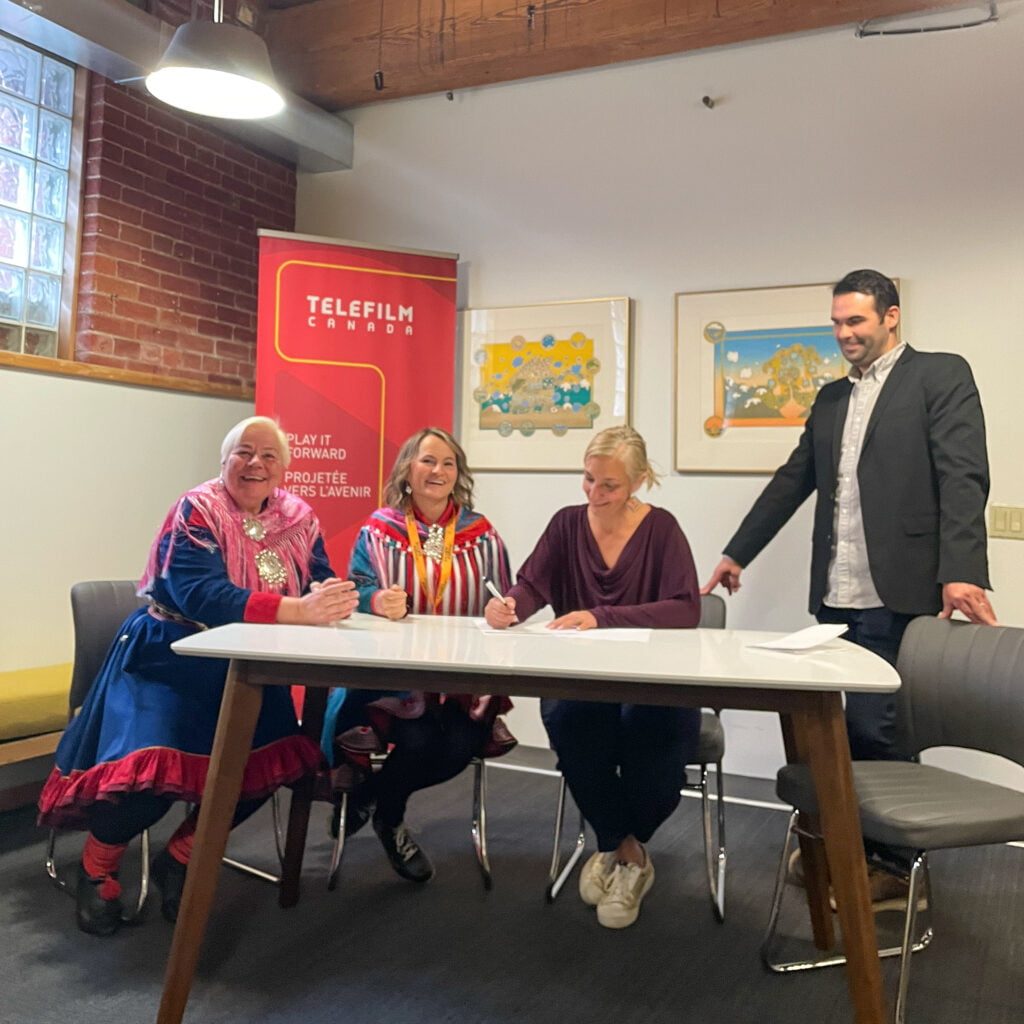A new study offers a comprehensive examination of the Arctic Indigenous audiovisual sector in Canada and across Arctic borders, detailing its current state, challenges, and opportunities. The study was commissioned by Arctic Indigenous Film Fund (AIFF) and developed in partnership with Telefilm Canada.
The study, carried out by the international screen sector consultancy firm Olsberg SPI (SPI), focuses primarily on the Canadian Arctic region Nunavut, along with some analysis of Yukon and the Northwest Territories. Given the scant research conducted in this field previously, the investigation emerges as a pioneering area of inquiry.
Insights and Recommendations
The findings highlight significant barriers faced by Arctic Indigenous filmmaker. SPI identified obstacles such as
- gaps in funding and expertise
- challenges in cross-border collaborations in the Arctic region
- issues with intellectual property (IP) ownership
- the absence of policies and strategies tailored to support Indigenous creators.
These challenges are crucial as they impact the sector’s ability to grow and develop both creatively and commercially.
The report recommended that the AIFF work with Canadian agencies to increase Arctic Indigenous funding caps to align with non-Indigenous funding caps. Recommended priority actions include ensuring easier access to both Indigenous and non-Indigenous funding sources, increasing flexibility in the use of production funds, and enhancing capacity-building programs led by organizations such as the Indigenous Screen Office (ISO) and AIFF.
It’s highlighted that AIFF should continue its collaboration with Telefilm, ISO, Canada Media Fund (CMF), and the National Film Board of Canada (NFB) in tackling cross-border funding issues, with a special focus on Greenland, while also providing support to new producers. The report also advocates for developing formal partnerships with international Indigenous-led audiovisual organizations in Canada, Australia, and New-Zealand.
The Importance of Collaboration
The report notes that the AIFF’s work has already started to overcome some of the challenges outlined, as well as to build infrastructure.
The AIFF, together with partners like the ISO, is focusing on several key areas. They are providing funds for a new studio planned in Iqaluit and working to broaden the reach and impact of Arctic Indigenous creations, both in Canada and worldwide. They’re also implementing new technologies and online platforms led by Indigenous communities, designed to respect and uphold Indigenous ownership of intellectual property (IP).

Invitation to Collaborate
AIFF values the importance of collaboration with agencies in Canada and worldwide. By working together, we can enhance the support infrastructure for Arctic Indigenous audiovisual creators, enabling them to overcome existing barriers and seize available opportunities. Our partnership aims to foster a sustainable environment where Indigenous filmmakers can develop their skills, access necessary resources, and achieve their creative and commercial goals.
We encourage agencies and all sector stakeholders to engage with us. Support and collaboration are vital in shaping a thriving Arctic Indigenous audiovisual sector that reflects the diversity and richness of Indigenous narratives.
Let’s make a difference together!



